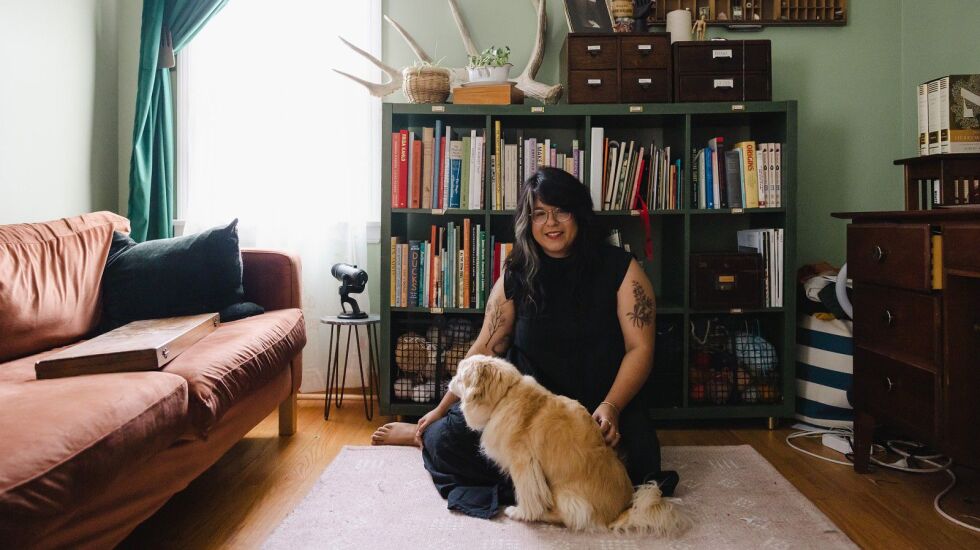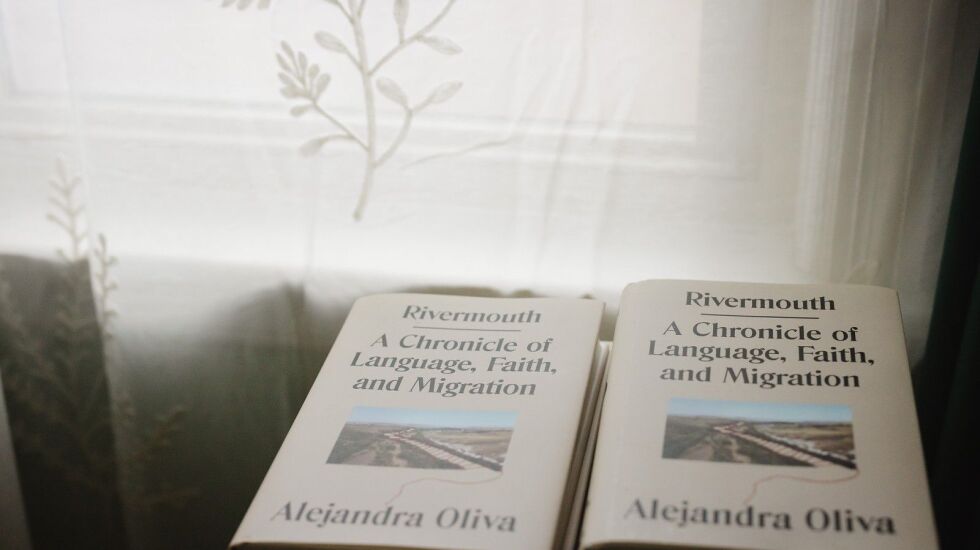
Alejandra Oliva started working with immigrants to Chicago as a volunteer interpreter in 2016, helping new arrivals fill out forms to apply for asylum.
The process saw her spend weeks working with people as they recounted the traumatizing stories that forced them to leave their homes.
A graduate student in divinity school at the time, Oliva began to draw connections between her studies and her job as interpreter for people in these stressful situations. The language used to define and express the immigration experience, she realized, often defaulted to talking about large movements of many people. The needs and issues of individuals were lost.
“It’s not a numbers game; it’s not just a demographics issue,” Oliva said. “It’s about individual people, individual families who are trying to do the best thing for themselves and for their families — and trying to sort out what comes next.”
She ties these experiences together in a new memoir, “Rivermouth: A Chronicle of Language, Faith, and Migration” (Astra House, $28), which weaves stories of those she met with her own family’s past.
“To be an immigrant is to belong to two worlds while also belonging to neither,” she writes. “Solid land is hard to come by and what is left to the immigrant is the watery dreamworld of the river, which sweeps them along in ways you can only half understand.”
The book comes as new U.S. laws take effect making it more difficult for asylum-seekers to find refuge. In Chicago, people are arriving daily, and the city has struggled to shelter them, having routed some to police stations, community centers and City Colleges of Chicago buildings.
“The thing that I hope that the book makes people realize is that people are coming because their homes are no longer safe places to be,” Oliva said, “and the best thing that we can do for people is to make our communities safe places to be, and that looks like helping everyone.”
Oliva worked in immigration advocacy roles from court observation to a full-time communications role with the National Immigrant Justice Center to accompanying people to service agencies and meetings with Immigration and Customs Enforcement officials. She often spent weeks delving into the stories of new arrivals to Chicago and helping them apply for asylum.
“It was basically doing a long-form interview with someone,” she said. “ ‘OK, tell me what happened, when you decided to leave, why did you decide to leave, and what were the things that happened to you or to your family that made that decision? Why are you scared to go back home? What are you worried will happen?’ And then you take it, and you sort of scrunch it up so that you can fit it into this form.”
Oliva’s parents, who immigrated to the United States before she was born, ensured she was bilingual. In the book, she tells their stories and those of her grandparents and great-grandparents.
But she’s clear through her inclusion of these experiences that her family had both logistical and financial privilege in their immigration story. Her parents, who were married when they moved to the United States from Mexico, arrived after her father was admitted to a doctoral program in Boston. Because his mother had been born in Texas, he already had U.S. citizenship. Many migrants aren’t that lucky, Oliva said.

In the book, Oliva questions who gets access to the proverbial American dream and reinforces the idea that the United States can be more welcoming and compassionate to those seeking help.
“There is — and there has always been — enough resources for everyone,” she said. “It’s just really challenging to get people to use them and to sort of allocate them in the ways that these communities actually need and these communities have been asking for.”
Oliva said she hopes chronicling personal stories will help people think about the individuals behind the immigration issues.
“It’s so easy to have your head turned or to kind of think that if nothing’s visibly bad to you that nothing’s going on,” she said. “But, like, there’s almost always something happening, there’s almost always need happening, there’s almost always some better world that you can be working towards. And I think that that’s kind of the thing that I want folks to take from the book.”
As a Chicagoan, Oliva has been part of the effort to help migrants to the city. When Texas Gov. Greg Abbott started busing migrants from the U.S.-Mexico border to Chicago last year, she was there when a Chicago welcome center opened and was one of the smiling faces who welcomed migrants after their 18-hour bus ride.
“It is among the proudest I’ve ever been … to get people the right resources, connected to the right agencies, making sure that everyone knew where they were headed,” she said. “It was just incredible to see.”
This boots-on-the-ground work is essential, Oliva said. Though it’s ultimately the job of federal and local governments to ensure that migrants have the resources they need, there is a way for people and communities to “meet needs with one hand while holding the government accountable with another hand.
“I think that there is a way for everyone to get involved and to step in and to give in the same way even when it’s not an emergency and even when it’s not people who are arriving suddenly,” she said. “And so, inasmuch as the book is about immigration, it’s also about figuring out how to get involved in your community and how to stay involved.”







